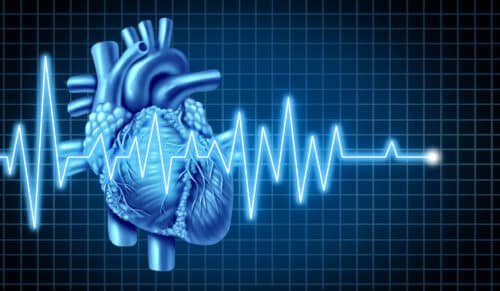Technion researchers together with their colleagues in Russia have developed a technology for accurate diagnosis of heart problems based on automatic analysis of routine ECG tests
Researchers at the Technion have developed a technology to accurately identify heart problems based on a routine EKG test. As part of the research, a database and analysis tool were developed that will provide doctors and other users, with unprecedented precision and speed, Automated diagnosis of a combination of eight common heart disorders.
the research published in the journal Scientific Reports The Nature group was led by Prof. Yael Yaniv, head of the Laboratory for Bioenergetic and Bioelectrical Systems at the Faculty of Biomedical Engineering, Prof. Assaf Shuster from the Laboratory for Computer Systems at the Taub Faculty of Computer Science, and PhD student Vad Gliner from the Taub Faculty of Computer Science at the Technion. Vladimir Markov from the Systems Programming Laboratory at the University of Novgorod and Arutium Avastyan from the Venikov Institute for Systems Programming at the Russian Academy of Sciences in Moscow also participated in the study.
An electrocardiogram (ECG) test is the most common technology today for diagnosing heart problems. It was demonstrated for the first time as early as 1903 and earned its inventor, the Dutchman Willem Eindhoven, the Nobel Prize in Medicine for 1924. Unlike the first electrocardiogram, which weighed more than 250 kilograms, the EKG devices we know today are portable devices that, based on a quick test, provide data about the condition of the heart, including arrhythmias and other problems. It is a non-invasive test that monitors the electric fields generated by the heart tissues, using external electrodes that are attached to 12 sites in the body and provide 12 output channels. Due to its relative simplicity, and the low cost of the device, this test is also available in small and remote clinics.
However, despite the significant development in ECG technology, and the miniaturization of the device to the dimensions we are familiar with today, Decoding the results is still done the old way - Reading the record (output) by a cardiologist. This decoding method contains of course subjective components Therefore it is no wonder that different specialist cardiologists may draw different clinical conclusions from the same output.
Decoding the output, then, is a bottleneck that occupies many research groups around the world. The attempt to mechanize the decoding of the ECG began as early as 1957, mainly in the context of ventricular fibrillation, but the performance of these systems is not impressive. Even the introduction of artificial intelligence into the picture has so far only led to the analysis of one output at a time and so far has not yielded a particularly high level of accuracy. All of these leave the risk ofUnderdiagnosis of critical heart problems.
And now for the good news: the technology developed by the Technion researchers and their colleagues in Russia shows unprecedented accuracy in the interpretation of multiple ECG recordings and provides a diagnosis of different heart disorders at the same time.
The technology developed by Technion researchers automatically analyzes the ECG records (or scanned images of the signals), and this is based on layered neural networks - one of the most effective tools in the world of artificial intelligence. These networks learn different patterns by Training on multiple examples, and the system developed by the researchers was trained on more than 40 thousand standard ECG recordings. These are ECG tests conducted for more than 6,800 subjects in 11 hospitals.
The tens of thousands of records were examined and deciphered by expert cardiologists, who classified them into nine different conditions - a normal cardiac condition and eight problematic clinical conditions. The new system introduces Average accuracy of 96% in diagnosing the various conditions compared to 80% in existing algorithms. The new system monitors all situations with a higher level of accuracy than its predecessors: Ventricular fibrillation, for example, was diagnosed with an accuracy of 98% compared to 92% in existing algorithms. LBBB - a conduction problem in the left ventricle - was diagnosed with an accuracy of 100% compared to 85%. A normal cardiac condition was diagnosed with an accuracy of 96% compared to 82%.
The achievement presented by the Technion researchers in Scientific Reports paves the way for early monitoring of heart problems, including relying on the recording photos on a smartphone. The researchers clarify that The system does not make the doctor redundant, but provides him with a sort of additional opinion, and may identify problems that human examination of the recordings, however professional, may miss. They are now planning follow-up studies that will improve the quality of the algorithm in contexts such as variation in the population and between populations, variation in the testing devices, and more, as well as the development of a smartphone application that will allow every doctor and patient to scan the chart and receive its immediate decoding.
Technion researchers have developed an open-source database for the benefit of doctors and other users. The study was supported by the Ministry of Science and Technology and the Yad Handiv Foundation.
for a magazine article Scientific Reports click here

